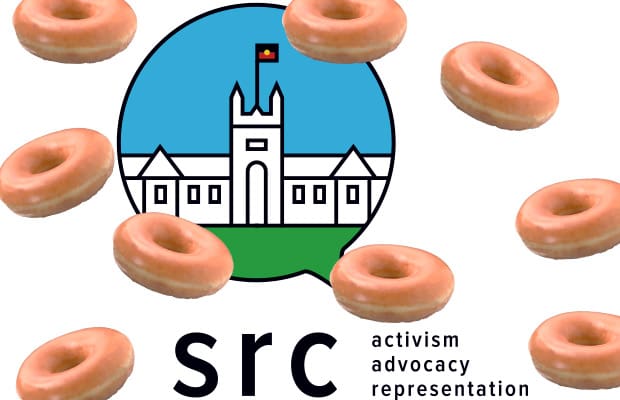The Students’ Representative Council (SRC) exists — at least according to its website — “to defend and advance the interests of USyd students”. In this vein, they offer a number of services, from the very important (free legal service, caseworkers, second-hand textbooks) to the less so (publishing your favourite weekly student newspaper) all under the guise of improving your life at University.
But the SRC has also realised — and rightfully so — that while all students are deserving of advocacy on their behalf, there are students on campus who face additional disadvantage and thus warrant a specialist representative fighting for their wellbeing. And so the SRC has dedicated student-elected positions, such as Wom*n’s (WoCo) Officer, Indigenous Officer, International Student Officer, Ethnocultural Officer and Queer Officer, to meet this need. In addition to their position on council, these officers usually head up a ‘collective’: an autonomous group funded by the SRC where people from that demographic can meet, discuss ideas, and organise activism.
It would be difficult to dispute that these are all great initiatives. It doesn’t take long to recall examples of successful collective action on campus, like former WoCo Officer Subeta Vimalarajah heading up the nationwide campaign to end the tampon tax, or the Queer Action Collective leading a protest against a gay-conversion therapy advocate speaking on campus. But looking at the success of these collectives in promoting the voices of oppressed groups, the lack of representation for one particular student demographic is striking: low SES students, or students from low socioeconomic status backgrounds, or “poor” students.
At an institution like the University of Sydney, overwhelmingly populated by students from affluent backgrounds, it is no great leap of the imagination to consider the structural barriers faced by those of who came here without this privilege.
One Law tutor once told our class to quit our jobs because there is “no way that you will be able to work and still pass this course”. At the time she said that I was working three days in a cafe to afford rent. And I did pass … just.
In every sandstone brick and Latin phrase we see that this University was not designed for “poor” people. And yet, here we are.
Despite low SES students being one of the largest and most severely disadvantaged groups on campus — make no mistake that members of other marginalised groups are disproportionately represented here, too — we face an additional inequity: there is no student officer to fight for our rights, nor a collective to bring together those who are struggling. The insularity of disadvantage is most effectively combatted by the opportunity to meet others from a similar background, to know that there are people facing, overcoming, and often falling down over, similar hurdles. Without this, I felt entirely isolated in my experience of University.
What we as students do have, though, are four SRC Welfare Officers. But here we come back to the SRC’s motto of being “for all students”. Under this policy, the welfare officers are concerned with the financial well being of each and every student by virtue of the fact that all students, even wealthy ones, can find it difficult to study full time. Last year they hosted three events: one aimed at garnering signatures to fight the Government’s proposed PaTH Program, and two ‘Free Krispy Kreme’ days.
While the aims of these officers may overlap with some of the needs of low SES students, the challenges faced by this sub-group are worlds apart from those of the ‘average’ student. The SRC’s failure to recognise the difference means equity is not achieved and a sense of community cannot exist. We need more than free donuts to get us through University.





